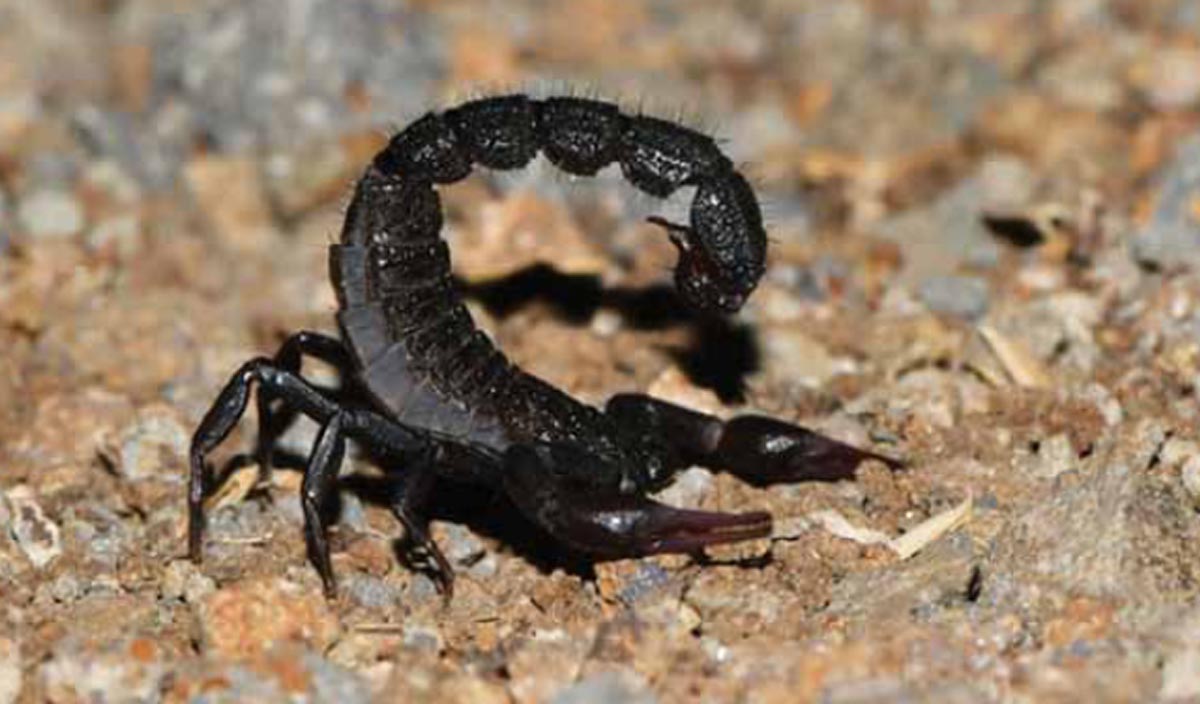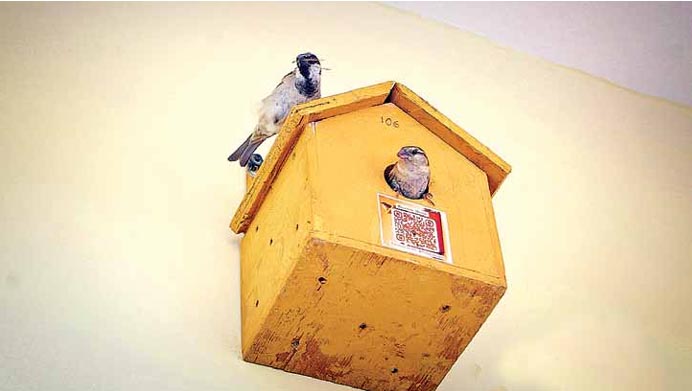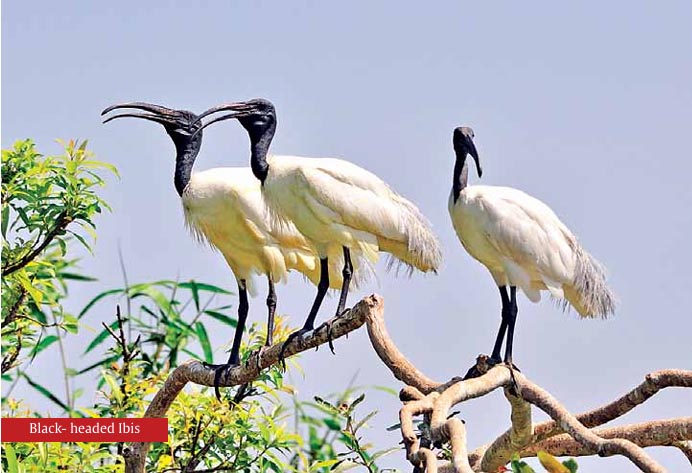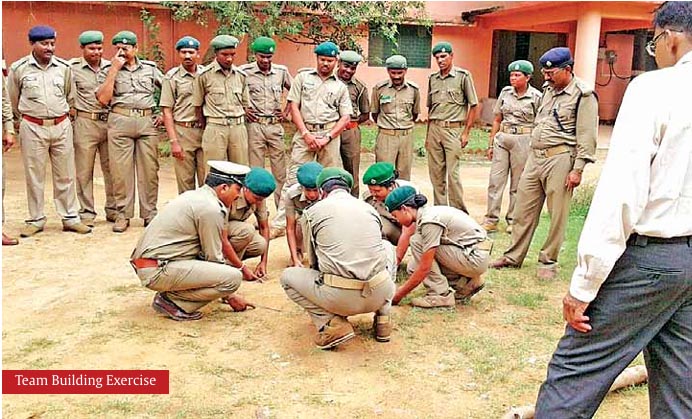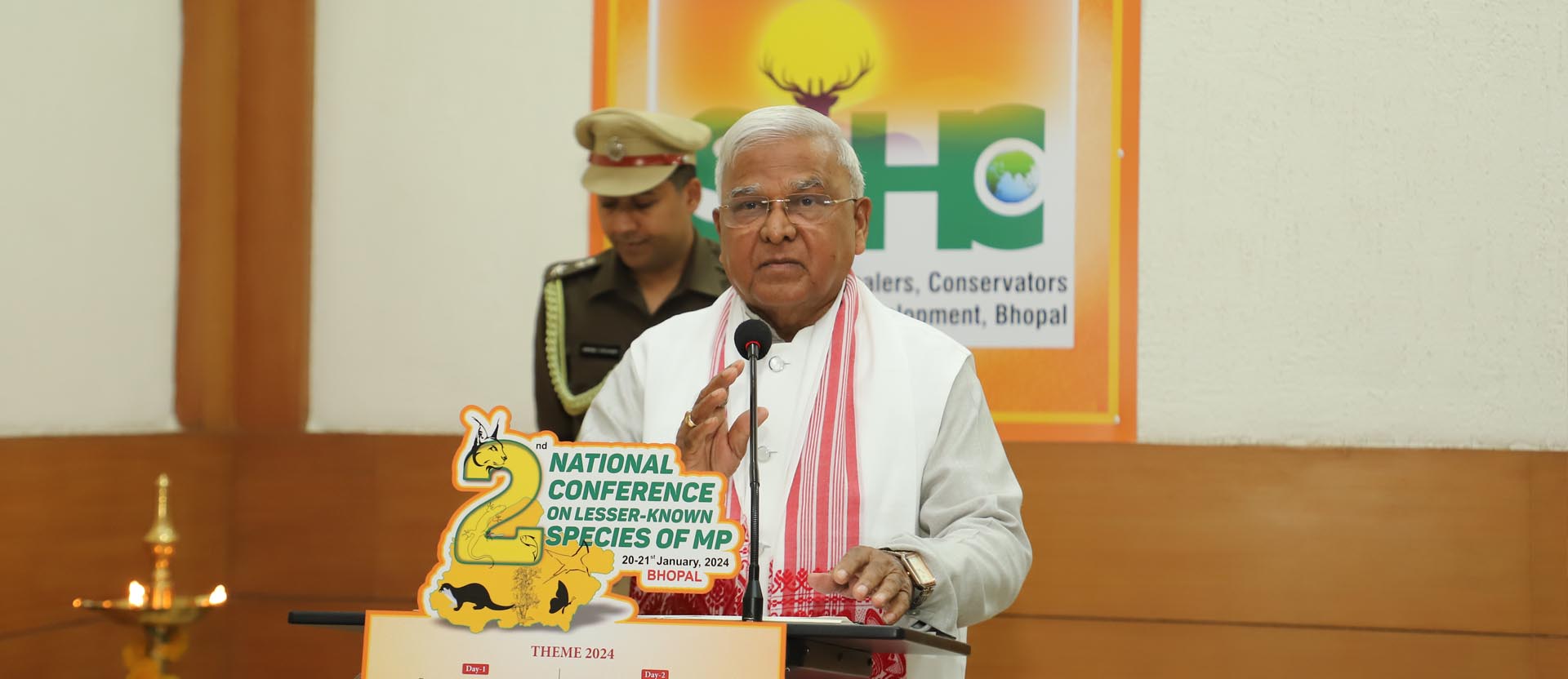
2nd National Conference on ‘Lesser Known Species of Madhya Pradesh’
By Ruchi Mishra

In the heart of India lies Mad hya Pradesh, a state brimming with biodiversity that extends far beyond its well-known inhabitants like Tigers, Leopards, Gaurs, Barasinghas and now Cheetahs as well. The National Conference on ‘‘Lesser Known Species of Madhya Pradesh, aimed to shed light on the conserva tion challenges faced by species that of ten dwell in the shadows of their more celebrated counterparts, 1st conference organized in Jan 2023 last year followed by the 2nd early this year in 2024. Madhya Pradesh boasts an impres sive array of wildlife, harboring over 45 species of mammalian fauna, constitut ing approximately 10% of India’s wild mammals. With a vast landscape that en compasses the Deccan Plateau, the state ranks as the second largest in India, covering 9.38% of the country’s geographical area, of which 25.13% is densely forested. The state takes pride in having the largest forest cover among all Indian states, totalling 77,462 square kms and is adorned with 11 National Parks, 25 Wildlife Sanctuaries and seven Tiger eserves, collectively constituting around 3.25% of the state’s total geographical area

The conference aimed to draw atten tion to the lesser-known species residing in Madhya Pradesh, highlighting their conservation needs and addressing the challenges faced in ensuring their survival. The event was again organized in collaboration with the Madhya Pradesh State Biodiversity Board (MPSBB) along with support from the Madhya Pradesh Forest Department, Bhopal Birds and Wildlife Trust of India, New Delhi. Among the lesser-known species discussed during the conference, were the Great Indian Bustard, Lesser Florican, Black-Bellied Tern, Pangolin, Indian Wolf, Small & Medium sized Cats, Spiders, Vultures etc.
These species are often overlooked in the broader conservation discourse, in spite they play a crucial role in maintaining ecological balance. The conference served as a latform
for stakeholders like NGO’s, Researchers and Conservationists to come together, sharing insights and perspectives on the conservation efforts and management challenges ssociated with these lesser-known species. The deliberations led to increased awareness & knowledge about them, with many researchers and NGOs expressing their commitment to undertake research projects and take conservation measures and advocate conservation efforts and management challenges as well of these species

The conference was inaugurated by Hon’ble Governor of Madhya Pradesh Shri Mangu Bhai Patelji along with Mr Rakesh Kumar Yadav, IFS, PCCF, Dr Atul Kumar Shrivastava, IFS, PCCF &
Mr V N Ambade IFS PCCF & Member Secretary MP State Biodiversity Board. Hon’ble Governor Sir said the responsibility taken by us to conserve the lesser known species is very big and he applauded this initiative. He emphasized on the nature sensitisation education for children so that the sensitivity towards Nature flourish from the beginning and
be more impactful in responsibilities they would take as youth. Mr. M. K. Ranjitsinh, IAS (Retd), Former Forest Secretary of MP greeted our conference with his esteemed
presence said that we need to take a check on arising conflict between Conservation and development (Urbanization) & need to target outreach programs among communities by giving them more attention, making them stakeholders in the act of conservation as they will be benefited they will help in conservation not only with more eyes to protect forest but with their traditional knowledge & skills they inherit from their ancestors.
Mr. Aseem Shrivastava then PCCF Wildlife said that as a forester we should not perform our duties only on the basis of experience but we need to take help of science based findings & researches, and this conference has delivered that, now the recommendations received by the departments will definitely help plan the Working Plan, Forest Management
Plans and Tiger Conservation plans more precisely. Mr. Jasbir Singh Chauhan, Former PCCF Wildlife & CWLW Madhya Pradesh, expressed the need to push the conservation efforts towards these lesser known species of Madhya Pradesh. He said that this conference gave a platform to researchers to showcase their work on these species and now the
recommendations should reach the right tables to show the impact on the field and SNHC INDIA help strengthen the conservation plans. He emphasized the crucial role of NGOs in wildlife management and conservation, particularly in mitigating human-wildlife conflicts and public support is very necessary for an initiative to make an impact and he found this programme a complete one for the cause.

Dr. Atul Kumar Shrivastava, IFS PCCF and Former Member Secretary MPSBB now CWLW MP was very happy with the 2nd edition of the conference and he said that small and lesser known
species are equally important for maintaining a healthy ecosystem, Wildlife & Forest conservation. He showed his gratitude to Hon’ble Governor in gracing the conference with his valuable presence and applauded SNHC and MPSBB for the 2nd edition. Mr. V N Ambade PCCF & Member Secretary MPSBB said that it is a very unique and important topic to conduct the conference and that too the 2nd time in a row. Madhya Pradesh State Biodiversity Board (MPSBB) has already sanctioned a project on Caracal based on recommendations received from the SNHC INDIA 1st conference and we extend invitations for projects and financial support to encourage further study and research on these species as per the recommenda
tions from this conference. The collaborative efforts of researchers, NGOs, and governmental bodies will undertake the collective responsibility in conserving these often-neglected species


In conclusion, the National Conference on ‘‘Lesser Known Species of Madhya Pradesh’’ stands as a pivotal milestone in elevating the conservation discourse to encompass the
richness of biodiversity that extends beyond the charismatic megafauna. It serves as a rallying point for concerted efforts towards preserving the intricate web of life that
defines Madhya Pradesh’s ecological tapestry.
Related Posts
Microhabitat charateristics and distribution of ground dwelling scorpions in central india
Microhabitat charateristics and distributionof ground dwelling scorpions in central india By Pragya Pandey, Sanjay…
The Sparrow House Journey: Transformative Impact of PBL from Classroom to Communities
The Sparrow House Journey: Transformative Impact of PBL from Classroom to Communities By Dr. Archana…
Renganathittu – The fascinating Bird Sanctuary
Renganathittu – The fascinating Bird Sanctuary by T. L. John Ranganathittu Bird Sanctuary in Karnataka…
Revival of Sunabeda Wildlife Division – A Case Study
Revival of Sunabeda Wildlife Division – A Case Study By Vishwanath Neelannavar, IFS Sunabeda Wild…

